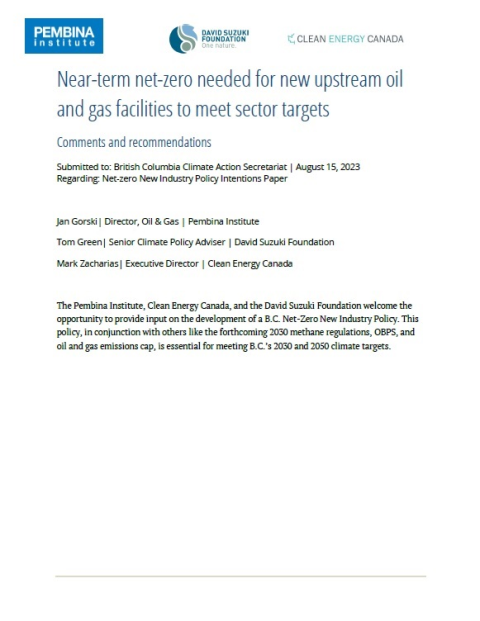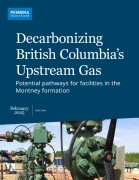The Pembina Institute, Clean Energy Canada, and the David Suzuki Foundation welcome the opportunity to provide input on the development of a B.C. Net-Zero New Industry Policy. This policy, in conjunction with others like the forthcoming 2030 methane regulations, OBPS, and oil and gas emissions cap, is essential for meeting B.C.’s 2030 and 2050 climate targets.
Recommendation Summary
- This policy should apply to significant expansions of facilities that would bring annual facility emissions over 10,000 tonnes.
- New upstream oil and gas facilities should be required to have a plan to achieve net-zero by 2030 because they are able to reduce emissions more cost-effectively than retrofitting existing facilities. This is critical to meeting B.C.’s 2030 oil and gas sector target.
- The limit on offsets should be aligned with British Columbia’s Climate Change Accountability Act, which has legislated targets of an 80% reduction in GHGs below 2007 levels by 2050, and limits offset use to 20% of the emissions reductions.










